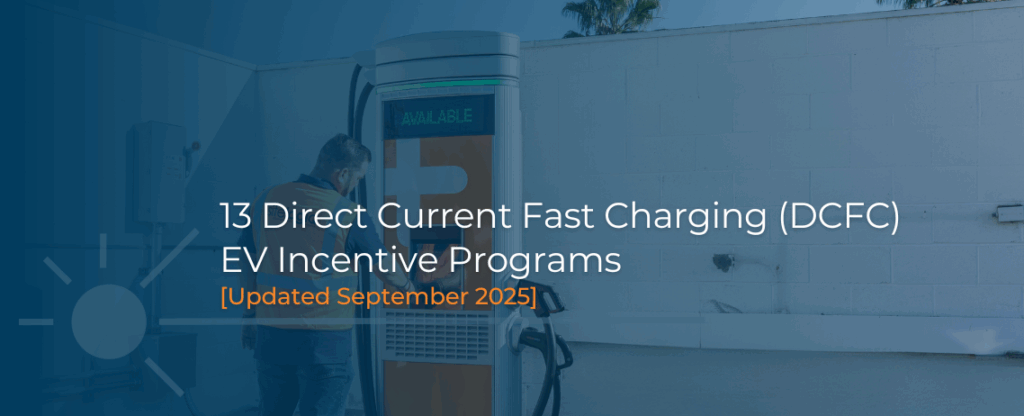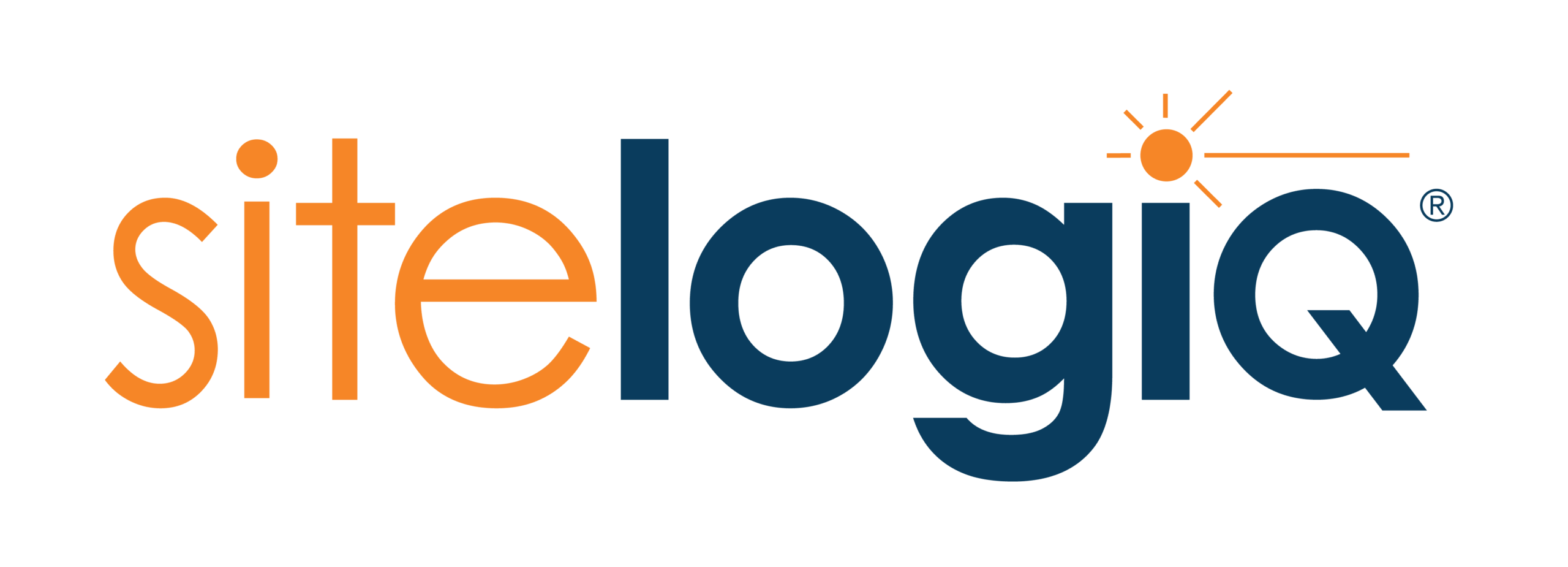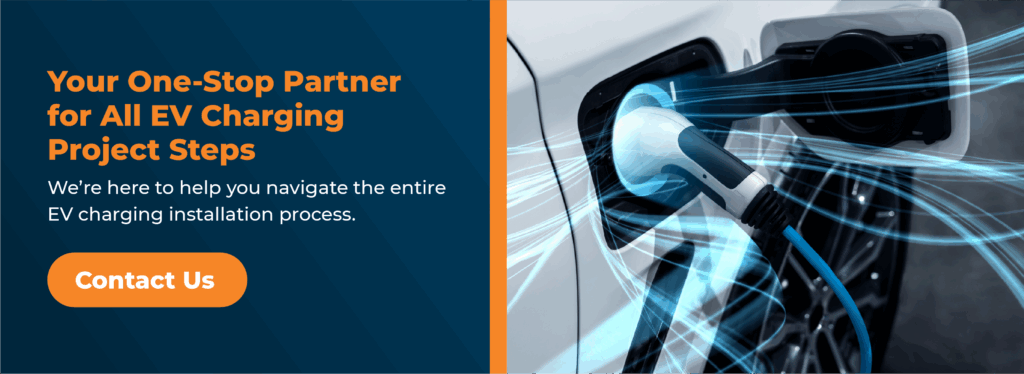
Electric vehicle (EV) adoption is rising quickly as prices drop, technology improves, and more models hit the market.
But even as EV sales accelerate, the growth in public charging hasn’t kept pace.
Many drivers—especially those who live in apartments, urban areas, or who travel long distances—still face challenges finding reliable charging options away from home. This gap not only fuels range anxiety but also slows the broader transition to electrified transportation.
One of the most effective solutions to overcoming this challenge is direct current fast charging (DCFC), which can help address the infrastructure gap and make EV ownership more practical for a wider audience. As EV adoption grows, expanding DCFC availability will be critical to ensuring the charging experience keeps pace with consumer demand.
What Is DCFC EV Equipment?
DCFC, also called Level 3 or DC fast charging, is the fastest and most powerful charging option available for EVs. DCFC stations are often installed near heavy-traffic areas and can charge a vehicle’s battery to 80% in as little as 20 minutes.
DCFC is typically installed at public or commercial sites because it requires very high levels of power and more costly equipment, making it less practical for residential or workplace settings.
While DCFC can be more expensive compared to other equipment alternatives that offer less output, there are a variety of incentive programs available across the U.S. that can cover some or all of the cost of the electric vehicle service equipment (EVSE), and corresponding infrastructure upgrades, construction, and installation.
Active DCFC / Level 3 Charging Programs Across the U.S.
The list below includes notable and active DCFC programs that are accepting applications as of September 2025. To access the full details about each program, including the incentive amount, click here.
Note: This post will be updated periodically as programs open and close. Please refer to the program website for complete details or contact SitelogIQ for more information.
| STATE | PROGRAM NAME | ELIGIBLE APPLICANTS |
| CA | Fast Charge California Project | Site owners or their authorized agents, including business and public entities. Priority to DAC and low-income communities. |
| CA | Invest Clean | Charging station developers and operators, fleet operators, truck stop operators, and distribution centers. Applicants must support Class 4 to 8 medium heavy-duty electric vehicles. |
| CO | Charge Ahead Fleet Zero Colorado | Businesses & industry, government & public institutions, non-profit organizations. |
| GA | GA Power Commercial EV Chargers | Georgia Power business customers. |
| GA | Georgia Power Make Ready Infrastructure Program | Georgia Power business customers, including commercial and industrial customers, municipalities, universities, schools, hospitals, and multifamily developments. |
| MI | DTE Charging Forward – Public Charger Rebate | Non-residential customers of DTE electric. Site hosts must be on route and publicly accessible. |
| MI | DTE eFleet Charger Rebates | DTE fleet customers. |
| MO | Ameren Missouri EV Charging Incentives | Businesses, multifamily apartment buildings, and publicly accessible locations. |
| NM | El Paso Electric Commercial EV Chargers | Workplaces and fleets |
| NY | PSE&G LI EV Make- Ready Program | PSE&G commercial users. |
| NY | Joint Utilities of New York | Commercial users of utility providers. |
| PA | Alternative Fuels Incentive Grant (AFIG) | Entities in PA with a fleet of ten or more vehicles comprised of buses and trucks that are Class 3 – Class 6 for the MHD projects OR light-duty fleets with two or more Class 1, Class 2a, and Class 2b vehicles. |
| WA | Puget Sound Energy Up and Go | For fleets: Fleet commercial customers in PSE territory that have 2 EVs already. For public use: Commercial customers in PSE territory. |
Note that there are also a variety of active Level 2 programs available to offset costs.
How Do I Apply for an EV DCFC Incentive Program?
EV charging incentive programs offer grants, rebates, or funding to offset installation costs, but they’re limited, deadline-driven, and often on a first-come first-served basis.
Applications must meet detailed requirements around the site, business type, charger specs, and access, and errors or delays can mean losing out. That’s why businesses turn to partners like SitelogIQ to navigate and manage the process.
Your Partner for Every Step of the EV Charging Process
SitelogIQ is your one-stop partner for all project phases of EV charging installation, including incentive application and management. In addition to being your consultant and contractor, we’re also a strategic partner that manages all phases of a project from planning and utility coordination to installation and incentive management.
We sit on your side of the table and act as your agent in the marketplace across legal, financing, and hardware/software vendor selection. We’ll handle the incentive program homework for you, so you never leave money on the table.
We’re here to help you navigate the entire EV charging installation process. Let’s chat about your needs today.






